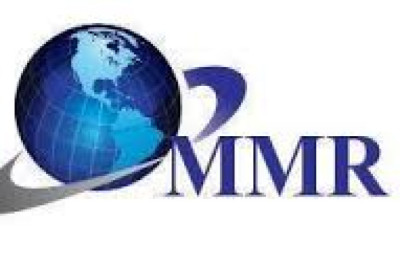views
Introduction to Network Attached Storage (NAS)
In today’s data-driven world, businesses of all sizes are constantly seeking efficient ways to manage and store their data. Whether you're running a small startup or a large enterprise, having a reliable and scalable storage solution is crucial. Enter Network Attached Storage (NAS). This blog post will take you through everything you need to know about NAS—what it is, its key features, the benefits it offers, and how to choose the right NAS solution for your business.
Understanding the Basics: What is NAS?
Network Attached Storage, commonly known as NAS, is a file-level storage architecture that allows multiple users and heterogeneous client devices to retrieve data from centralized disk capacity. Essentially, NAS systems are dedicated to serving files over a network.
NAS functions as a specialized server designed for file storage and sharing. It connects to a network and provides storage access to all devices connected to that network, making it ideal for both home and business use. Unlike traditional storage solutions, Network attached storage is easily scalable, flexible, and user-friendly.
By using NAS, businesses can centralize their data storage, making data management much simpler. It eliminates the need for multiple external drives and allows for faster and more efficient data access.
Key Features of NAS Storage
Scalability and Flexibility
One of the standout features of NAS is its scalability. NAS solutions can grow with your business, accommodating increasing amounts of data as needed. You can start with a small setup and easily add more storage drives as your requirements expand.
Flexibility is another strong suit of NAS. It supports various applications and uses, from simple file sharing to more complex tasks such as media streaming and virtual machine hosting. This makes NAS a versatile choice for different business needs.
Data Redundancy and Protection
Data redundancy is critical for businesses, and NAS delivers on this front. Many NAS systems come with RAID (Redundant Array of Independent Disks) configurations, which provide data redundancy and ensure that your data remains safe even if one or more disks fail.
Additionally, NAS solutions offer robust data protection features such as encryption, snapshots, and replication. These features help safeguard your data against loss, unauthorized access, and other threats, giving you peace of mind.
Remote Access and File Sharing
With the rise of remote work, having access to your data from anywhere is more important than ever. NAS systems enable remote access, allowing you to retrieve and share files securely from any location with an internet connection.
File sharing is also made simple with NAS. Multiple users can access and collaborate on files simultaneously, improving productivity and teamwork within your organization. User permissions can be set to control who can view or edit specific files, ensuring that sensitive information is protected.
Backup Solutions
NAS is not just a storage solution; it also serves as an effective backup tool. NAS devices can automatically back up data from connected computers and servers, reducing the risk of data loss due to hardware failures or human error.
Many NAS systems support incremental backups, snapshot backups, and cloud backup integration, providing comprehensive backup options to suit different needs. This ensures that your data is always protected and easily recoverable.
Benefits of Using NAS in Enterprise Environments
Cost-Effectiveness
One of the primary advantages of NAS is its cost-effectiveness. Compared to traditional storage solutions, NAS offers a more affordable option without compromising on performance. It eliminates the need for expensive servers and complex infrastructure, making it a budget-friendly choice for businesses.
The scalability of NAS also contributes to its cost-effectiveness. You only pay for the storage you need, and you can easily expand as your business grows, avoiding the upfront costs associated with large storage systems.
Enhanced Data Security
Data security is a top concern for businesses, and scale out NAS storage provides robust security features to protect your data. With encryption, secure access controls, and regular firmware updates, NAS ensures that your data remains safe from cyber threats and unauthorized access.
Additionally, NAS systems often include built-in antivirus software and firewalls, adding an extra layer of protection. Regular backups and data redundancy features further enhance data security, ensuring that your information is always safe.
Improved Access and Collaboration
NAS improves access to data and facilitates collaboration within your organization. Employees can easily access shared files and work on projects together, regardless of their location. This enhances productivity and streamlines workflows.
The ability to set user permissions ensures that sensitive information is only accessible to authorized personnel, maintaining data integrity and security. With NAS, you can create a collaborative environment that promotes efficiency and teamwork.
Selecting the Right NAS Solution for Your Business Needs
Choosing the right NAS solution for your business depends on several factors, including storage capacity, performance requirements, and budget. Here are some tips to help you make the right choice:
- Assess Your Storage Needs: Determine the amount of data you need to store and consider future growth. Choose a NAS system that can accommodate your current and future storage requirements.
- Consider Performance: Evaluate the performance capabilities of different NAS systems, including processing power, memory, and network connectivity. Ensure that the system can handle your workload efficiently.
- Budget: Consider your budget and look for a NAS solution that offers the best value for money. Compare different options and choose one that meets your needs without breaking the bank.
- Features and Support: Look for additional features such as data redundancy, backup options, and remote access. Also, consider the level of customer support provided by the manufacturer.
Future Trends in NAS Technology
NAS technology is constantly evolving, and several trends are shaping its future. One such trend is the integration of AI and machine learning capabilities into NAS systems. This allows for advanced data analysis, predictive maintenance, and automation of routine tasks.
Another trend is the increasing adoption of hybrid cloud NAS solutions. These solutions combine the benefits of on-premises NAS vs cloud storage, offering enhanced flexibility, scalability, and disaster recovery options.
Additionally, advancements in network connectivity, such as the implementation of 10GbE and 25GbE networks, are improving the performance and speed of NAS systems, making them more efficient and capable of handling larger workloads.
Conclusion and Call to Action
In conclusion, Network Attached Storage (NAS) offers a powerful and versatile solution for businesses looking to improve their data management and storage capabilities. With its scalability, cost-effectiveness, enhanced security, and improved access and collaboration features, NAS is an invaluable tool for enterprises of all sizes.
If you’re ready to transform your data management and take advantage of the many benefits NAS has to offer, now is the time to act. Explore different NAS solutions and find the one that best suits your business needs. Don't wait—start leveraging the power of NAS today and propel your business towards greater efficiency and success.












